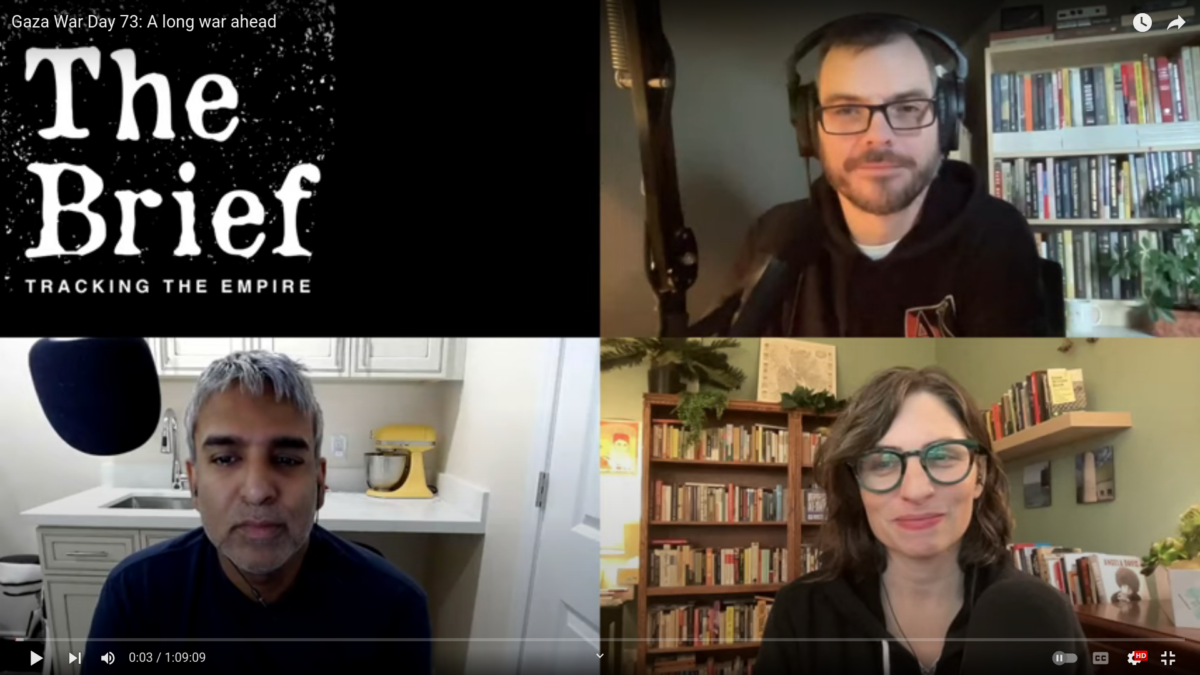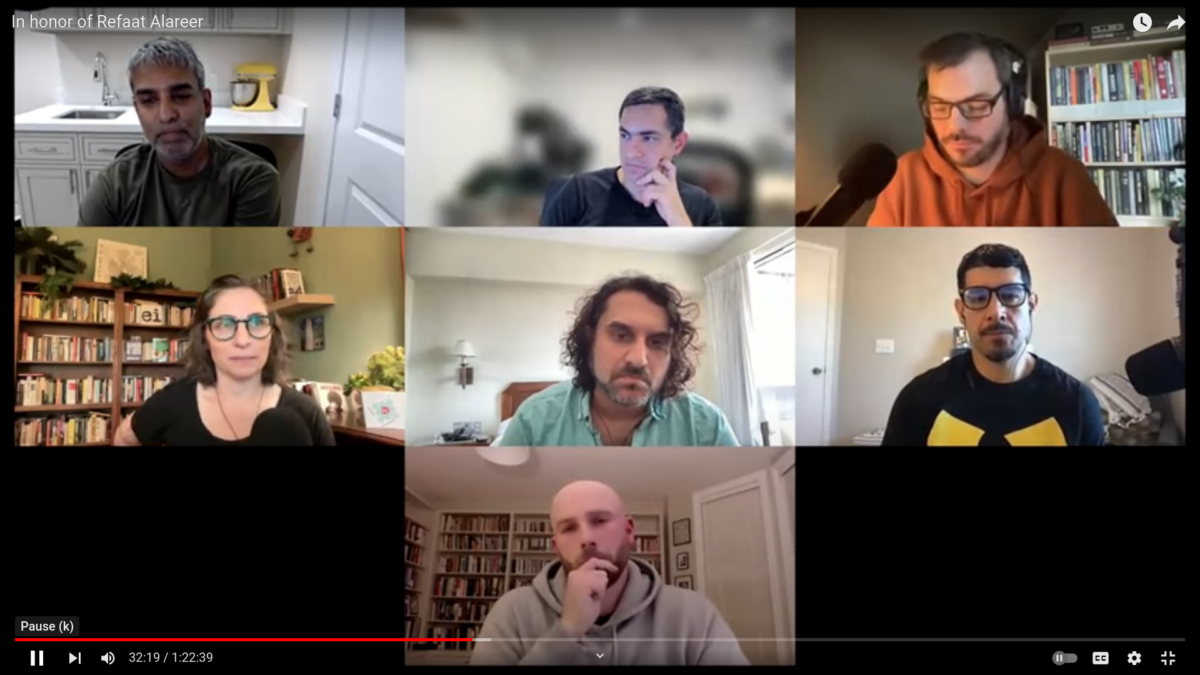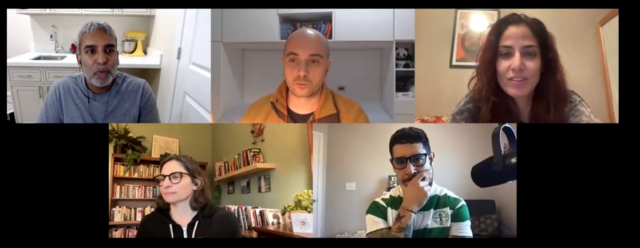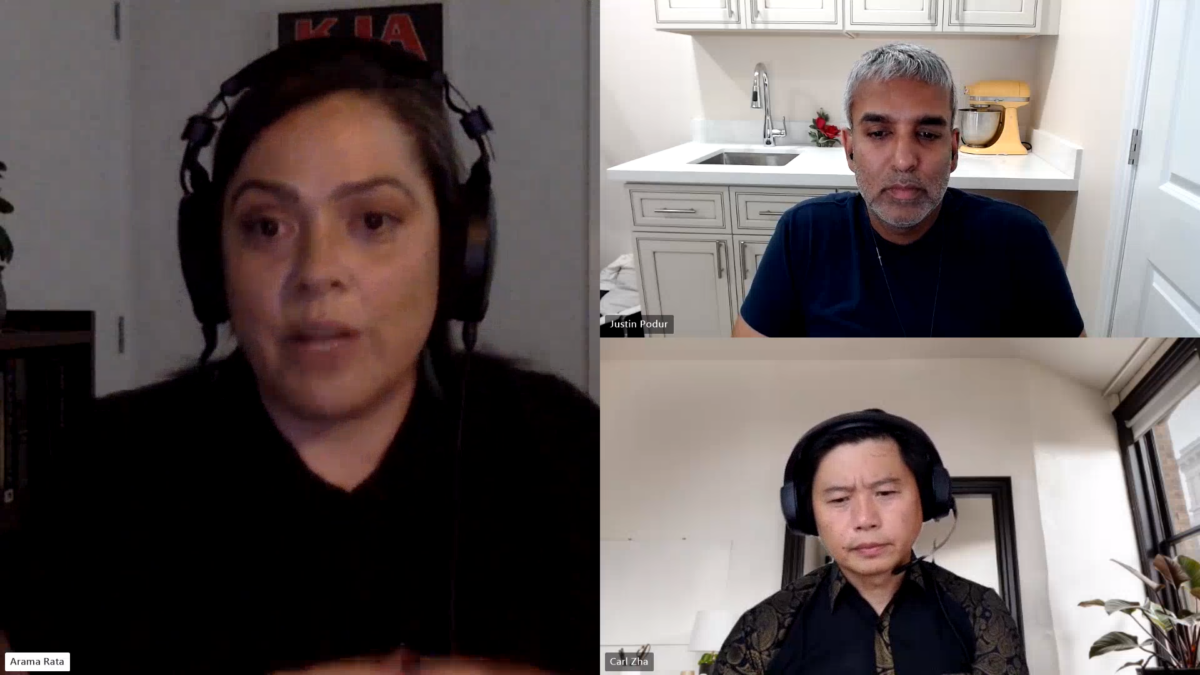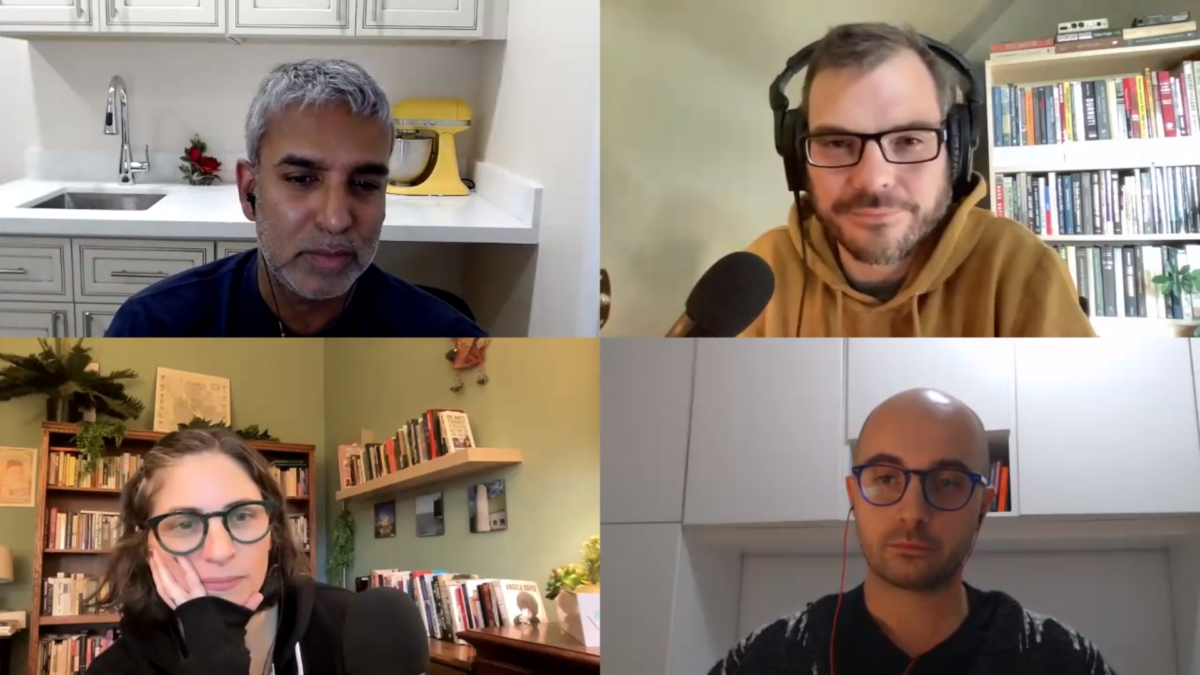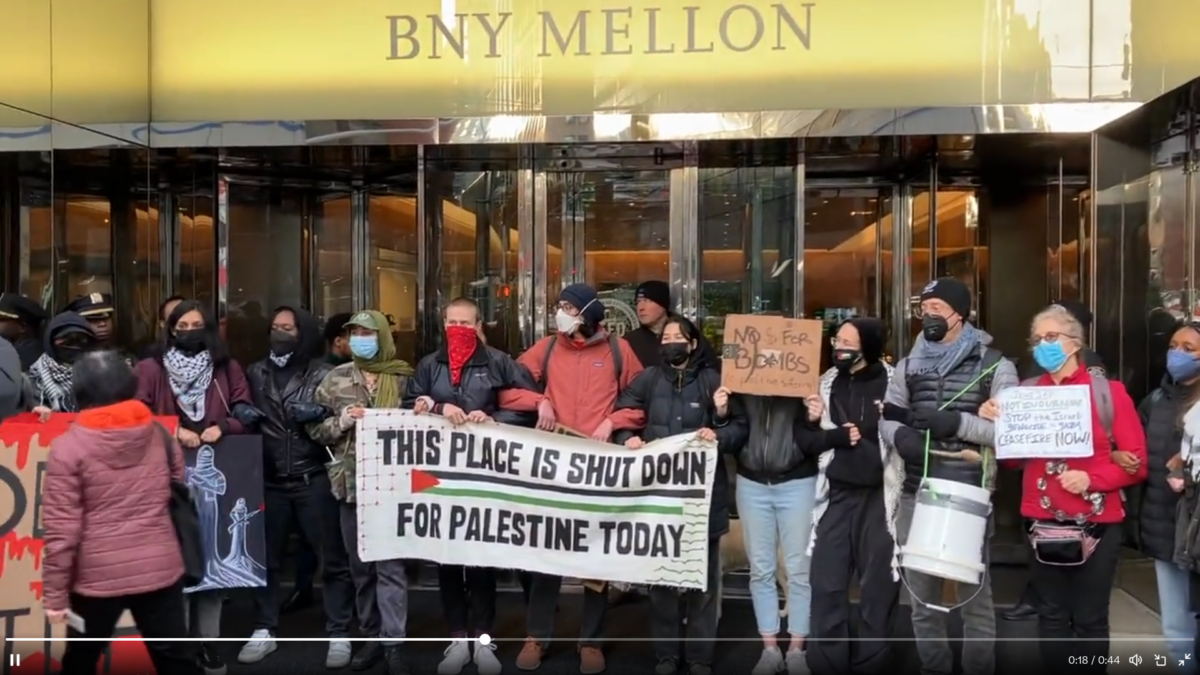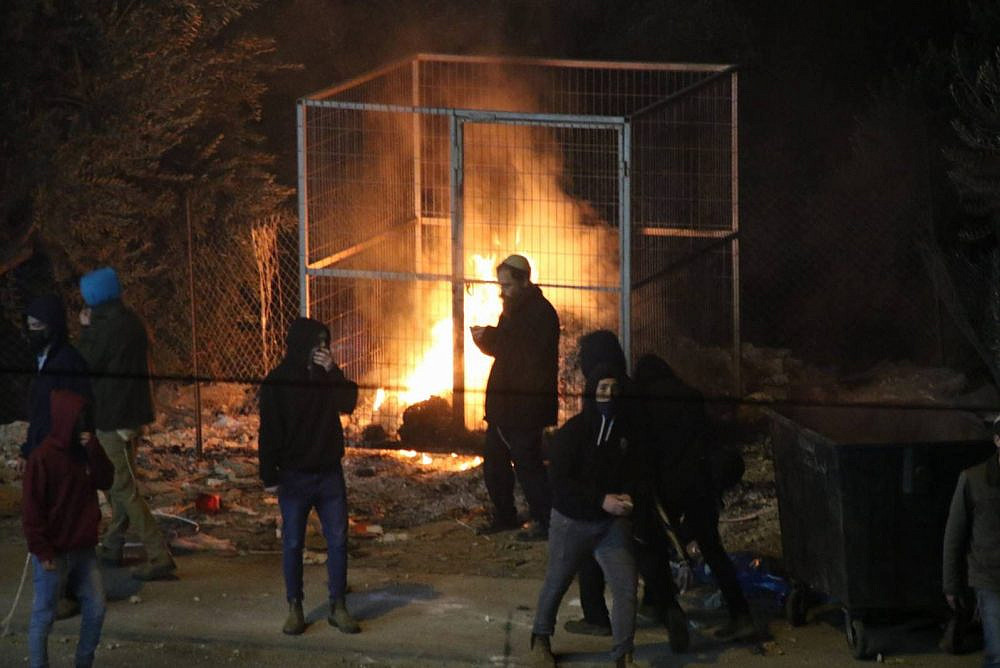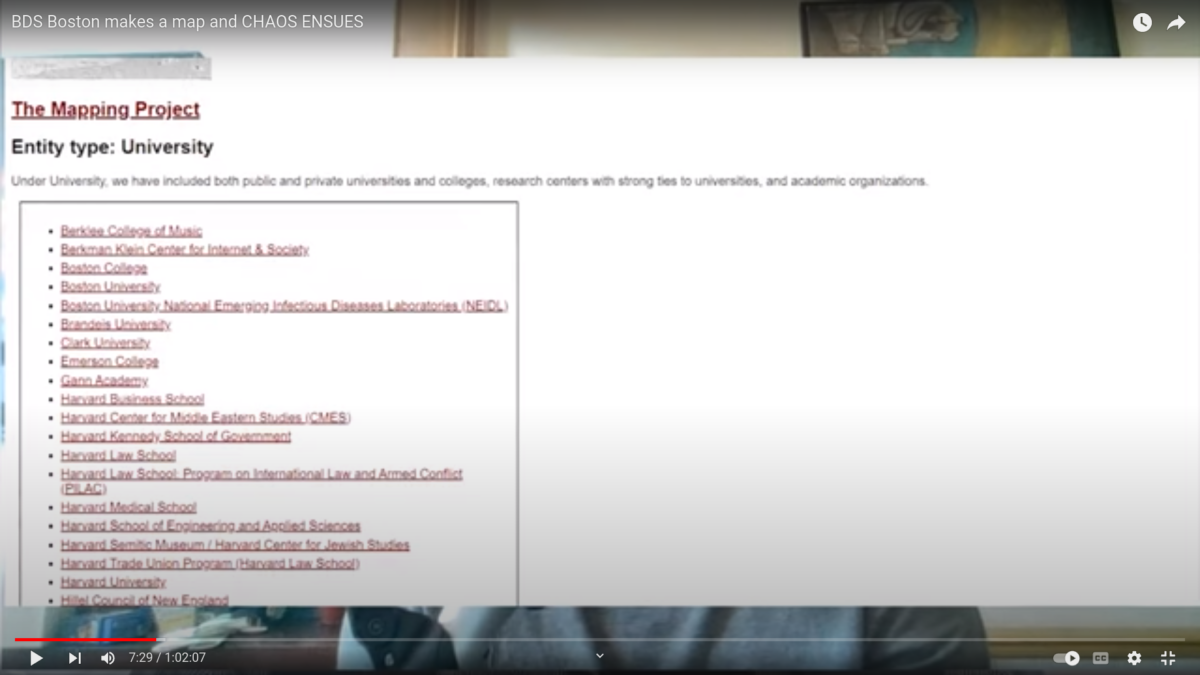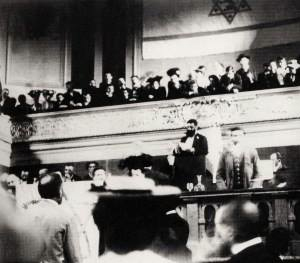Joined by Nora and Jon from The Brief / Electronic Intifada to talk about the War in Gaza. More information emerges about what happened on October 7; New atrocities committed since Refaat Alareer’s murder, including bulldozing patients at a hospital and snipers killing women at a church. Some strategic speculations using the history of the Vietnam War as a guide.
Category: Palestine
AER 134: Tankie Therapy 7 – in honor of Refaat Alareer
Our usual group gets together to talk about the Gaza War, this time we all share some words about literature prof, teacher, poet and hero Refaat Alareer, assassinated by Israel a couple of days ago. Some discussion of military tactics and strategies as always.
AER 133: Tankie Group Therapy #5 Gaza War resumes after pause
Nora, Matteo, Rania, and Alex are gathered to talk about what we’re seeing and trying to make sense of on Israel’s War on Gaza after 8 weeks, a couple of days after the end of the “humanitarian pause”. We open with a discussion of the five premature babies left to die in Al-Nasr hospital when doctors and parents were forced out of the hospital at gunpoint by the Israeli military. We conclude with a discussion of what wars of resistance and guerrilla wars have looked like in history.
AER 132: The Gaza War as settler-Indigenous warfare & as people’s warfare – CAUKUSZIANS reunite
The CAUKUSZIANS unite once again, this time to look at the Gaza war through a couple of different lenses: Arama through the lens of settler-Indigenous warfare in the wars fought by the Maori to defend their land from Anglo settlers, and Carl through the lens of protracted people’s war and the Chinese experience of fighting the Japanese occupation.
AER 131: Tankie Group Therapy #4: Gaza War Week 6
The alliance between the East is a Podcast, the Brief, and the Anti-Empire Project continues as we discuss the Gaza War six weeks in (since October 7 2023). Structured as group therapy (the fourth in the series) we cover some of the news, the dynamic of aggression and resistance, military analysis of guerrilla war, the painful search for historical analogies to help us understand the moment, and more.
Anti Empire Radio 130: Palestine Action and the focus on Elbit Systems
A discussion with Calla and Fergie from Palestine Action US about the theory of direct action and how activists have tried stop the flow of Western weapons that are being deployed against Palestinians in Gaza, instead of, e.g., moral suasion on Western politicians. The Palestine Action UK precedent and the reason for Palestine Action’s focus on Elbit Systems, the flagship corporation of Israel’s military industrial complex.
AER 129: War on Gaza on day 22
Joined by Jon Elmer and Nora Barrows-Friedman from The Brief / Electronic Intifada to talk about the War on Gaza, including the preparation for ground invasion, the siege, and the attack of October 7.
The Brief Episode 32: West Bank Escalation
I joined Nora and Jon from The Brief to talk about the new Resistance in the West Bank and Israel’s ongoing spiral out of control.
AER 112: BDS Boston makes a map and chaos ensues
In June 2022 a small activist group in Boston created mapliberation.org, a project mapping primarily policing institutions in Massechussetts and their connections to corporations, organizations, and politicians who are implicated in the prison-industry complex, in throwing people out of their homes to create investment opportunities, in grabbing Indigenous land, in colonizing Palestinian land, and other harms. When the website came out, the very institutions discussed in the mapping project unleashed a storm of criticism, bullied them off of two servers, and hurled a wide ranging set of ridiculous accusations. A roundup of the mapping project and the “freakout” about it.
Scramble for Africa 11: Theodore Herzl, the Uganda Plan, and the Zionist Scramble for East Africa
At the first Zionist Congress in 1897, delegates agreed to pursue the colonization of Palestine. But at the Sixth Zionist Congress in 1903, Theodor Herzl presented a proposal for a colony in East Africa – he presented it as a mere stepping stone to Zion, but it caused bitter divisions among the delegates. We tell the little-known story of the British negotiations with the Zionist movement for a colony in Africa, centering on the founder himself, Theodore Herzl (not to be confused with a contemporary Viennese colonialist utopian named Theodore Hertzka, whose novel also became the basis for a failed African colonization scheme…). Our last stop in the British Scramble for East Africa (West Africa’s next).

